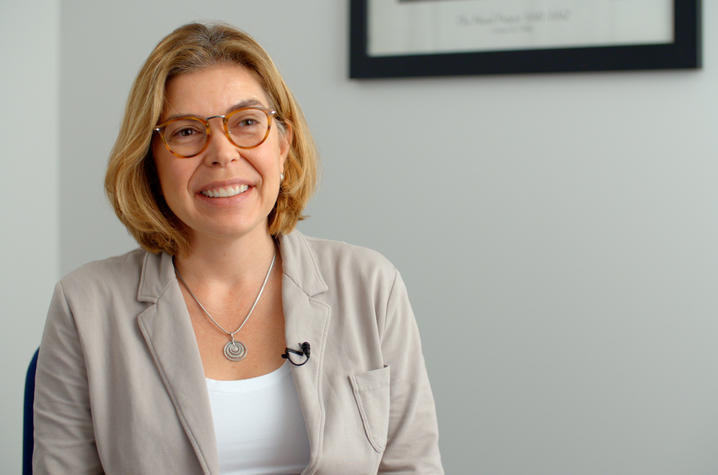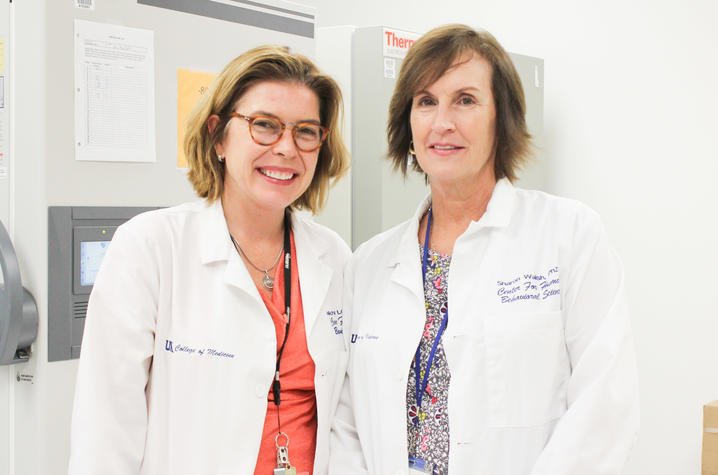UK Professor Helps Develop Guidelines for Treating Opioid Use Disorder
LEXINGTON, Ky. (March 7, 2018) — Dr. Michelle Lofwall, associate professor in the University of Kentucky College of Medicine, was among the experts who assisted the Substance Abuse and Mental Health Services Administration (SAMHSA) in developing and publishing a new set of guidelines regarding the use of opioid maintenance therapies in the treatment of opioid use disorders (OUD). The published document - Treatment Improvement Protocol (TIP) 63, Medications for Opioid Use Disorder - according to a press release from SAMSHA "Reviews the use of the three Food and Drug Administration-approved medications to treat opioid use disorder (OUD): methadone, naltrexone and buprenorphine…"
Assisting with the development of these guidelines was something Lofwall was proud to be a part of, she said. "I was excited to be asked to help develop this new Treatment Improvement Protocol (TIP) focused on how to use FDA-approved medications for opioid use disorder. There is a lot of stigma around addiction, and medications used to treat it, so it was critical to have a federal document that clearly explained indications for medicine, provided clinical guidance and dispelled several myths about OUD and its treatment."
The opioid epidemic has significantly impacted the state of Kentucky and Lofwall has worked with other researchers and clinicians at UK to improve available treatment options and increase access for those diagnosed with an OUD. Along with Dr. Sharon Walsh, director of the UK Center on Drug and Alcohol Research, Lofwall has been involved with conducting clinical trials for new formulations of buprenorphine including an implant and an injectable formulation.
The inclusion of experts from states hardest hit by the epidemic is something Lofwall believes will allow those communities to better serve their patients. She said, "Experts in states hard hit are part of the solution – we often have to get creative and develop pathways to treatment that didn’t previously exist. This (improving access) is in large part what this TIP is about."
Lofwall is hopeful continued guidance from federal agencies, and the work done daily by those treating patients diagnosed with OUD will enable more people to enter long-term remission and recovery. "At UK, we have several clinics now that are treating OUD with medication and ancillary psychosocial and recovery support services – we know that patients with OUD can enter remission and live full and purposeful lives," she said. "We just need to do more of it in Kentucky and throughout the nation.”






